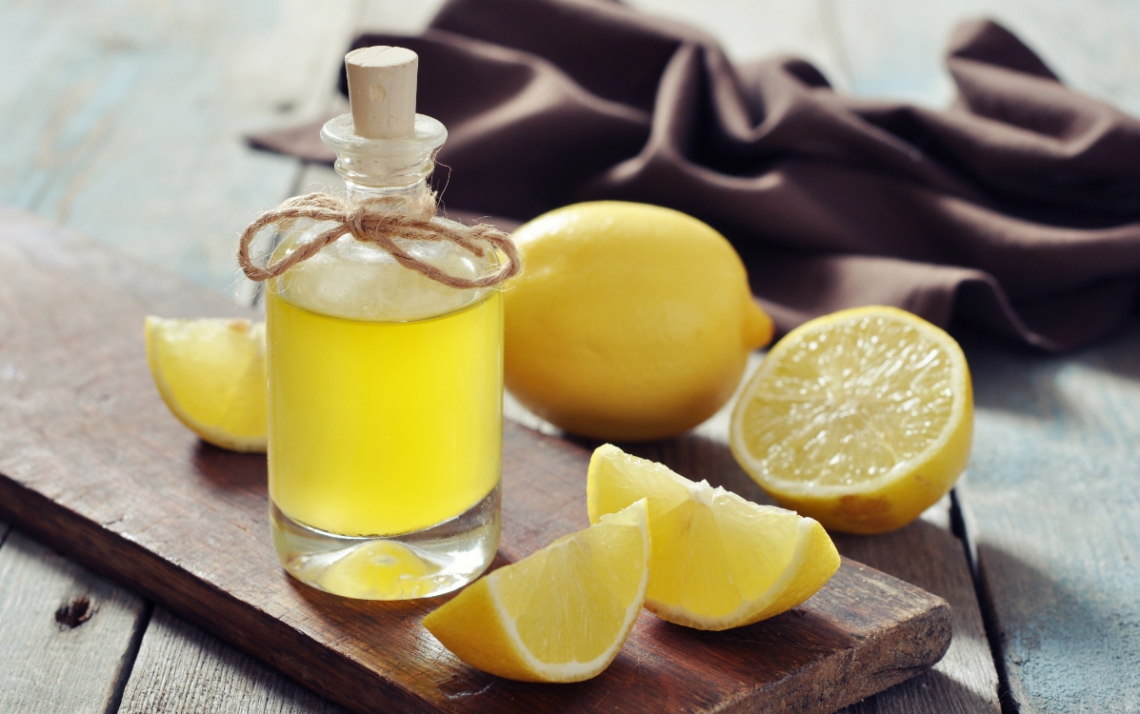Activate your metabolism, alkalize your body, and fight inflammation with 1 essential oil trick.
Ayurvedic tradition tells us to drink warm water with the juice from half a lemon first thing in the morning upon rising.
This pleasantly tart beverage is a simple way to stimulate the liver and promote bile flow, which in turn aids digestion.
Interestingly, lemon water also sometimes helps resolve heartburn symptoms by stimulating healthy stomach function. It also aids in balancing the body’s pH.
Sadly, there is something else that warm lemon water may do, though: ruin your teeth.
Lemon juice is highly acidic because of the citric acid, so over time, routine consumption of lemon juice (or any acidic food or drink) will erode your teeth enamel. (You can look this up yourself to confirm).
In order to minimize the erosion, you can brush your teeth or you can rinse your mouth with purified water after you finish your lemon water.
Or you can drink your lemon water with a straw (so that it bypasses your teeth). These are all useful tips, but will not stop the erosion entirely.
Lemon essential oil is the better way to go.
Something else you can do is use lemon essential oil (make sure it is labeled for human consumption) instead of lemon juice. Lemon oil is cold-pressed from the aromatic rinds of lemons, not the fruit.
It is pH neutral as it does not contain citric acid and is safe for the teeth enamel. As well, it is more potent than lemon juice; it takes 3,000 lemon rinds to produce 1 kg of lemon essential oil.
Lemon essential oil may also help to support your energy level and mental clarity so try adding a drop to your bottle of water before you go to the gym (don’t add it to a plastic bottle as the oil will degrade the plastic).
Lemon oil can be used for any reason or any time you would normally use lemon juice.
The Secret Ingredient in Lemon Essential Oil
The lemon essential oil contains d-limonene (which is not present in the juice).
Limonene is a widely distributed, natural, non-toxic compound found in citrus fruits, spices, herbs, and some conifer essential oils.
It is a powerful antioxidant with a lot of research behind it: look it up and see for yourself. D-limonene is shown to cause no toxicity to humans—even at huge doses.
If you do a little bit of research, you will find that the evidence is overwhelming that incorporating limonene in your diet is a healthy lifestyle choice.
If you are currently adding lemon juice to your water and want more than just a little zing to start your morning, why not try adding one drop of essential oil for a little while and see if you feel a difference?
Reference: HealthyAndTastyRecipes.com








